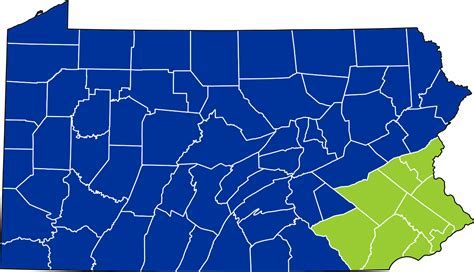
When Judge John Milton Younge was nominated to the federal bench by President Obama, Senate Judiciary Committee Chairman Chuck Grassley killed the nomination by refusing to give it a final Committee vote. With Younge renominated by President Trump, Grassley appears to have dropped his opposition and scheduled the vote, making it significantly more likely that Younge will be confirmed.
Background
A native of Philadelphia, John Milton Younge was born there in 1955. He attended Boston University, graduating in 1977 and then getting a J.D. from Howard University School of Law in 1981.[1]
After graduation, Younge worked as a solo practitioner for three years and then joined the Philadelphia Redevelopment Authority as a Staff Attorney.[2] He moved up through the ranks of the organization, becoming General Counsel in 1990 and Deputy Executive Director in 1991.[3]
In 1996, Younge ran for and won a seat on the Pennsylvania Court of Common Pleas as a Democrat.[4] He has served in that position ever since. Younge made two unsuccessful runs for the Superior Court, losing elections in 2007 and 2009 to Republican candidates.
History of the Seat
Younge has been nominated for a seat on the U.S. District Court for the Eastern District of Pennsylvania. This seat opened on November 18, 2013, when Judge Mary McLaughlin moved to senior status. Younge, who had applied for a judgeship with Pennsylvania Sens. Bob Casey and Pat Toomey back in 2011, was nominated on July 30, 2015.[5] Younge received a hearing before the Senate Judiciary Committee on December 9, 2015, but never received a vote to move to the floor. In blocking Younge, Chairman Chuck Grassley cited Younge seeking the endorsement of Planned Parenthood during his judicial campaigns.[6] As such, Younge was never confirmed and the seat remained open throughout the Obama Presidency.
In early 2017, Casey and Toomey asked the White House to renominate Younge for the position.[7] Younge was initially interviewed by the White House in April 2017, but then sat in limbo for a year before the vetting process began.[8] President Trump announced Younge’s nomination to the vacancy on July 17, 2018.
Jurisprudence
From 1996, Younge has served as a Judge on the Philadelphia County Court of Common Pleas, which are the primary trial courts in Pennsylvania. As a Judge, Younge presided over cases in civil and criminal matters, as well as domestic relations, juvenile, and family law matters. Over the last twenty two years, Younge has presided over approximately 2300 cases.[9]
Among his more notable cases, Younge presided over a settlement between victims of gun violence and WalMart in relation to charges that WalMart negligently sold ammunition.[10] Younge also presided over the settlement of claims arising from the sex abuse of Sean McIlmail by a priest at the Philadelphia Archdiocese.[11]
Over his twenty two years on the bench, Younge’s rulings have been reversed by higher courts twenty times. Of these reversals, the most significant is in Zenak v. Police Athletic League City of Philadelphia.[12] In that case, Younge allowed whistleblower claims brought by a police officer to proceed in a jury action against the City.[13] The Pennsylvania Commonwealth Court reversed the decision, finding that the claims needed to statutorily be decided by a judge, not a jury.[14]
Political Activity
Younge has been involved with the Philadelphia Democratic Party since 1984, when he served on the Ward Executive Committee for the Party.[15] Younge won election to the bench as a Democrat and ran twice unsuccessfully as a Democrat for the Pennsylvania Superior Court.
Overall Assessment
While the Trump Administration has renominated a fair number of Obama judicial nominees, Younge is a particularly unusual choice for renomination. This is because, unlike the other picks renominated, Younge was actively opposed by Judiciary Committee Chairman Chuck Grassley. As such, Younge could potentially not be considered a mainstream choice and could attract strong opposition from Republican senators.
However, even in the (slightly) more Republican senate of 2019, it is still likely that Younge gets confirmed. Assuming all Democrats support Younge, he only needs three Republican votes to be confirmed. One of those votes will undoubtedly come from Sen. Toomey, who pushed for his renomination. Sens. Collins and Murkowski will likely provide the other two. In addition, there are probably a fair number of Republicans who do not wish to see a Trump nominee fail on their watch.
Nevertheless, Younge will likely attract more opposition than most other Trump nominees, and does face a non-zero chance of being blocked by conservative opposition.
[1] Sen. Comm. on the Judiciary, 115th Cong., John M. Younge.: Questionnaire for Judicial Nominees 1.
[2] Id. at 2.
[3] Id.
[4] Id.
[5] Id. at 65.
[6] Philip Wegmann, After Facing Questions on Abortion, 2 Obama Judicial Nominees Fail to Advance, The Daily Signal, Jan. 29, 2016, https://www.dailysignal.com/2016/01/29/after-facing-questions-on-abortion-2-obama-judicial-nominees-fail-to-advance/.
[7] See Younge, supra n. 1 at 65.
[8] Id.
[9] See Younge, supra n. 1 at 32.
[10] Peter Hall, Wal-Mart, Victims’ Families Settle, The Morning Call, Apr. 7, 2017.
[11] Craig R. McCoy, In Largest Reported Payout Yet, Philadelphia Archdiocese Settles Abuse Suit, June 25, 2018.
[12] 132 A.3d 541 (Pa. Cmnwlth 2016).
[13] See id.
[14] Id.
[15] See Younge, supra n. 1 at 58.
Pingback: Where We Stand: Assessing Vacancies and Nominations in the Federal Judiciary – The Atlantic Coast | The Vetting Room